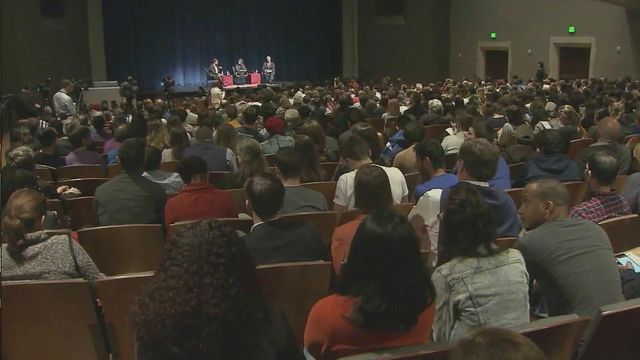Duke announces new task force to examine bias, hate on campus
Duke University announced Friday that it is creating a new task force to examine allegations of bias and hate on campus and a website to monitor the university's response to hateful acts.
Posted — UpdatedDuring the conversation, students shared their experiences on campus and expressed their frustrations with what they call inaction by Duke administrators. Some students cried as they described their experiences on campus as minorities.
“To be frank, I don’t have faith in you all. I don’t. I’ve lost it,” one student said.
“I do not feel safe as a black female at Duke. What are you going to do about it?” another student asked.
Administrators who led the conversation said they are committed to change, but many students said they’re doubtful. Senior Adesuwa Giwa-osagie was one of the students who shared her doubts about school leaders’ ability to respond to racist and homophobic issues on campus.
“All we’ve had is conversations, so I came here to question the administration about the inaction that they’re taking and the fact that they’re not proactive,” Giwa-osagie said.
Brodhead defended the decision to allow the student to return.
“You don’t want this university to punish you on the basis of the passions of the community. You want people to look at the facts and make a judgment that they think is just,” he said.
Giwa-osagie says she wishes these types of discussions would have happened earlier and says Missouri “has changed things for campuses across the country.”
Before the conversation started, signs of tension on campus were clear. The message “Black Lives Matter” was left overnight on a statue, and a group of students protested in the auditorium ahead of Friday’s talk.
• Credits
Copyright 2024 by Capitol Broadcasting Company. All rights reserved. This material may not be published, broadcast, rewritten or redistributed.






